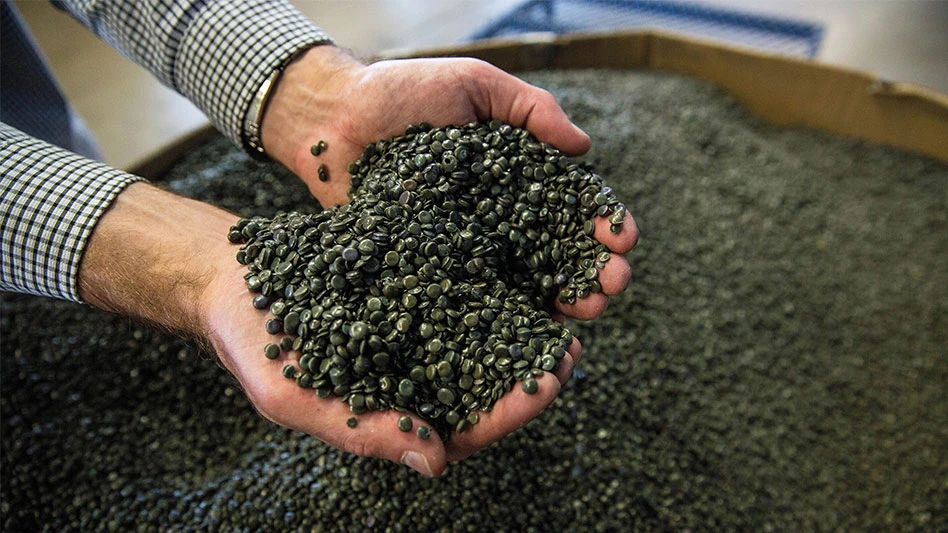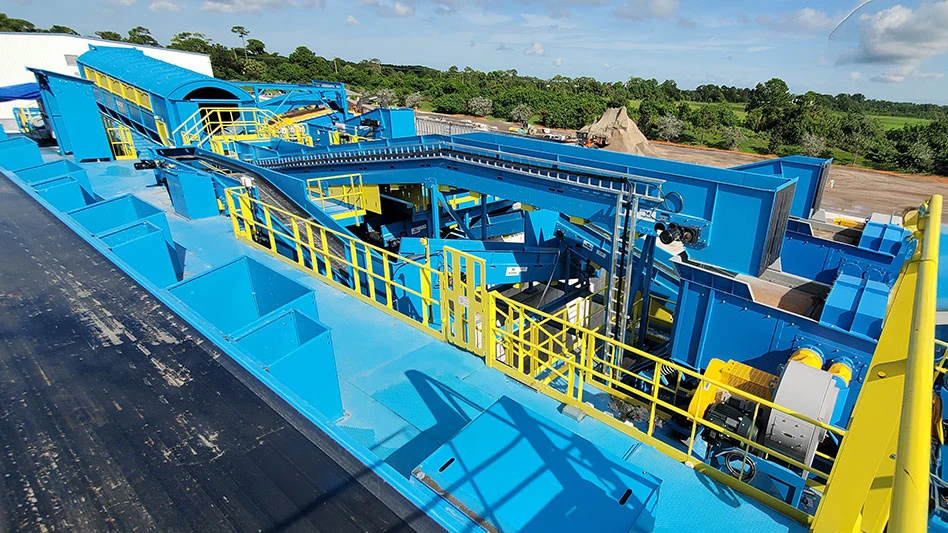
Photo courtesy of Polykemi Group
Polykemi Group, a Swedish plastic compound producer, says in 2024, it reduced emissions by 11,800 tons of carbon dioxide equivalent (CO2e), comparable to the emissions of 6,700 European cars, compared with 2023, according to its 2024 sustainability report.
The figures reflect the company’s implementation of Materialsmart, a system offered by Polykemi that analyzes the environmental impact of materials and helps businesses make more informed choices about the materials they use. Compared with emissions levels in 2021, before the launch of Materialsmart, the savings during 2024 is equivalent to 13,400 cars.
“The 2024 figures exceeded my expectations,” says Henrik Palokangas, sustainability specialist at Polykemi. “It’s now 4.5 years since we started the Materialsmart project, and the work we’ve put in since then has led to last year’s record savings.”
According to Polykemi, the company’s single largest source of emissions is related to the raw materials in the products it sells. The company’s 2024 sustainability report shows that using the right raw materials, whether virgin or recycled, in the right places goes hand in hand with lowering carbon footprint.
“During 2024, as much as 28.8 percent of our global material use consisted of recycled plastic feedstock. This increase is entirely thanks to our work with Materialsmart,” Palokangas says.
At the core of Materialsmart are comprehensive life cycle assessments (LCAs) that enable Polykemi to set targets for reducing carbon footprints.
“We cover 97.74 percent of our total material use with our LCA,” Palokangas says. “This means we can propose more sustainable materials to our customers and better evaluate our suppliers based on the lowest environmental impact, allowing us to make conscious choices that, in the long run, drive other suppliers in the right direction.”
LCA data for each material is available to customers who purchase from Polykemi.
“We want our customers to make the best material choices they can, so they receive the data with every material at no extra cost. This allows them to use the information in their development work and in their reports,” Palokangas says.
According to Polykemi, by 2030 the company is set to reach net zero indirect and direct emissions from sources owned, controlled or purchased by Polykemi. Additionally, the company has an ambition to reduce indirect emissions from sources not owned or controlled by Polykemi Group but related to production by 5 percent each year.
“We constantly continue to reduce our carbon footprint,” Palokangas says. “By always having access to accurate and reliable data as the foundation of our Materialsmart concept, we can empower our customers in their material choices. We are also constantly working to improve our data so that our customers have exact figures on our materials’ environmental impact.”
Latest from Recycling Today
- Greenwave raises revenue but loses money in Q2 2025
- Recycled steel prices hold steady
- EY says India’s need for scrap imports will continue
- Coming full circle
- Amcor, DCM introduce fertilizer packaging with 35 percent recycled content
- Comstock Metals gets closer to commissioning commercial-scale solar panel recycling facility
- Washington selects Circular Action Alliance as PRO
- Smurfit Westrock expands in Latin America





